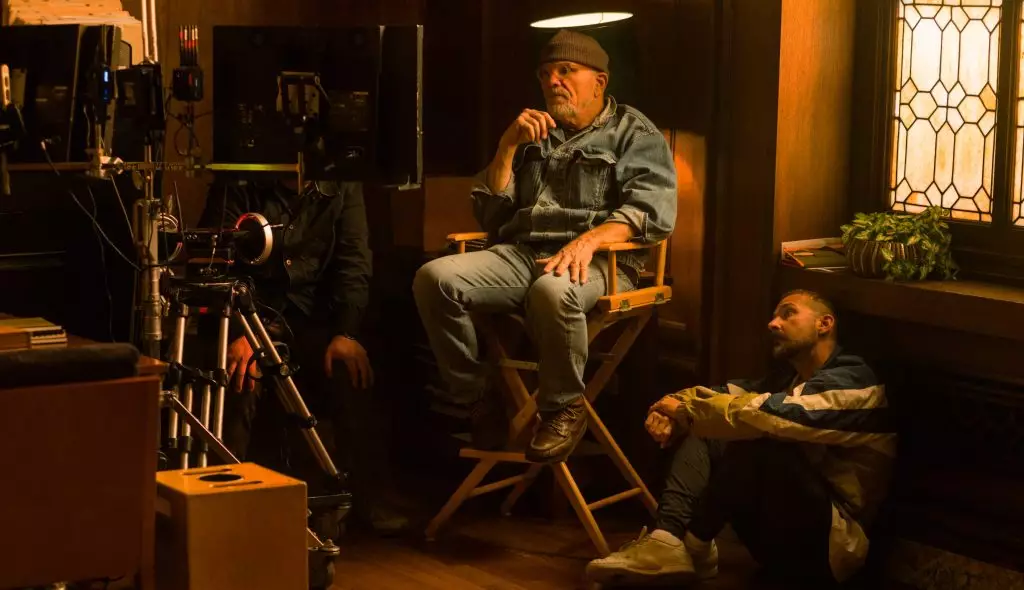In a refreshing return to filmmaking, David Mamet has marked his cinematic resurgence with the release of *Henry Johnson*, his first directorial project in over a decade. Known for his razor-sharp dialogue and deeply complicated characters, Mamet’s approach to storytelling encapsulates the human experience in a raw and unfiltered manner. The film, stemming from his 2023 stage play, portrays the intricate unraveling of its titular character—a man who inadvertently plunges into a moral quagmire after attempting to assist a friend. What sets this film apart is not just its provocative narrative, but its unapologetic confrontation of complex themes such as accountability and ethical ambiguity.
*Mamet’s journey into the world of self-distribution is notably audacious.* In an era where traditional Hollywood routes often seem like an impenetrable maze, he has opted for a model that allows greater creative freedom. As Mamet wisely suggests, the digital landscape offers both immense opportunity and daunting challenges. His statement, “Anyone can make a movie and distribute it and take their chances,” encapsulates the unyielding entrepreneurial spirit of independent filmmakers today. This defiance against conventional norms not only empowers artists but casts a wider net of possibilities for storytelling in the modern age.
Daring to Dissect Cultural Mythology
The heart of *Henry Johnson* is its protagonist, brilliantly embodied by Evan Jonigkeit, who finds himself ensnared in a web of unforeseen consequences. Mamet’s storytelling doesn’t shy away from illustrating the murky waters of human morality—a recurring theme throughout his oeuvre. The film dives into a labyrinth of manipulation and ethical quandaries, leading its characters down treacherous paths where accountability becomes a contested arena.
One of the most notable aspects of Mamet’s screenplay is the dialogue which, while often witty and acerbic, is deeply revealing of the characters’ psychological states. As always, Mamet resists the temptation to provide easy answers; instead, he crafts a narrative that encourages viewers to engage in meaningful introspection. This is evident in the interactions between the lead character and his cellmate, Gene, portrayed by Shia LaBeouf. Mamet’s dismissal of method acting—despite LaBeouf’s intense preparation—reflects his belief that actors can access their characters’ depths without necessarily resorting to extreme measures. This perspective adds layers to both the directing and acting processes, elevating the film’s narrative quality.
Reflections on the Industry’s Transformations
A candid exploration of the state of the film industry, Mamet’s insights on the streaming phenomenon are particularly striking. He asserts that the convenience of streaming—while revolutionary—comes at a cost to the quality and integrity of cinematic art. In his view, the immediate accessibility of films risks diluting the audience’s connection to the artistic experience. There’s a palpable concern beneath his words, as he grapples with the implications of streaming platforms overshadowing the traditional theatrical experience. This critique of the industry reflects a deep-seated passion for the art form that strains against the rapid changes brought about by technology.
Mamet’s musings on self-distribution also speak to a broader trend among creators who are asserting their autonomy in a landscape dominated by corporate interests. It’s a call for artists to reclaim control over their narratives and presentation. His experience suggests that gaining visibility in today’s saturated market may indeed hinge more on luck and innovation than on decades of industry experience.
Engaging with Controversial Themes
The discussion surrounding Mamet’s unfinished work, including female adaptations of his iconic pieces and critical responses to figures like Harvey Weinstein, showcases his willingness to explore contentious themes. His play *Bitter Wheat*, which reflects on the fallout of the Weinstein scandal, demonstrates how Mamet is unafraid to wade into the waters of complex social dialogues. The nuanced portrayal of controversial figures and situations serves to challenge audiences and spark necessary conversations.
Mamet’s upcoming project, focusing on the lives of two women with an agenda against J.K. Rowling, indicates a continuation of his trend toward provocative narratives. This willingness to tackle modern societal issues reminds us of the potent role art can play in reflecting and critiquing current cultural climates. Mamet’s career, with its plethora of genres and styles, affirms that true artistry often lies in the courage to confront uncomfortable truths.
In the world of storytelling, David Mamet stands as a formidable force, unafraid to navigate the complexities of the human experience, and his latest work encapsulates that essence brilliantly.
